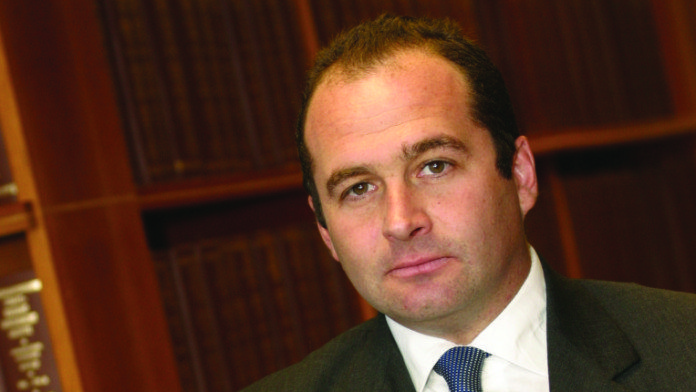
THE political developments of the last few weeks – most notably industry sweetheart Cyril Ramaphosa’s December election as president of the ANC – is already boosting moods in the corridors of South Africa’s mining companies.
That’s according to mining lawyer Hulme Scholes – an unlikely source of optimism when it comes to private-public sector cooperation considering he’s taking South Africa’s Department of Mineral Resources (DMR) to court.
“There is a new hope that has been blown into industry by Ramaphosa and there appears to be new political resolve to mend the relationship between the mining industry and the DMR [Department of Mineral Resources],” he told the South African Coal Export Conference 2018, in Cape Town.
“There’s a new energy, and hopefully we can capitalise on this. For the first time in many years, I’m getting calls from people that are excited about meeting up at the Mining Indaba,” he said of the upcoming yearly mass meeting of miners in Cape Town – set to kick off next week.
While optimistic that public-private cooperation is heading towards some restoration, his criticism of the DMR and the third iteration of the Mining Charter has lost little of its sting. The mining lawyer is forging ahead with his bid to have the Mining Charter declared unconstitutional.
Backed by seven unnamed mining companies, Scholes is arguing that the Mining Charter is policy, not law, and thus miners cannot not be penalised for non-compliance with the charter’s explicit empowerment and transformation provisions.
“The current Mining Charter will have the opposite effect than government wants. Its lunacy. Once implemented, black shareholders will only be able to sell their shares held in a mining company to other black people. This is not applicable to white people.
“Moreover, if a black shareholder sells his or her shares to another black person, they need to spend 49% of the gains made from that sale on another mining asset, which doesn’t apply to whites. It’s crazy,” he said.
Following a separate court challenge of the charter by the Chamber of Mines (CoM), the DMR temporarily suspended the implementation of the third version of the charter. But Scholes hopes – on the back of new political leadership sensitive to industry concerns – that the proposed legislation will be altogether scrapped.
Said Scholes: “I would hope to soon see engagement between CoM and government that will draw a line through Charter 3, look at how effective Charter 1 was, and come up with a new Charter 3. This depends on how energised the new government is, but, hopefully by the end of the year, we could have new mining charter”.
Scholes’ criticism of the Mining Charter does not extend to its original form. In fact, when read in conjunction with the Mineral and Petroleum Resources Development Act (MPRDA), he describes the first iteration of the charter as “… a solid piece of legislation”.
He adds that some of the most effective and impactful black economic-empowerment transactions were undertaken before the MPRDA came into effect in 2004. This was largely because the DMR at the time was comprised of administrators rather than the current departmental cohort, which are politically motivated, he said.
“If we have a committed change from government and we have a return to administering the industry as opposed to taking political decisions, it will work. If there’s a change in attitude, then the conflict will dissipate and we can move forward. I think this will get better,” he said.










